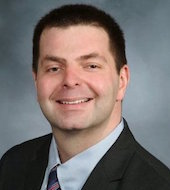Summary
Definition
History and exam
Key diagnostic factors
- obsessions
- compulsions
- sensory phenomena
- schizotypal personality disorder
- tic disorder
- poor motor coordination
- sensory perceptual difficulties
- difficulties in sequencing of complex motor tasks
Other diagnostic factors
- male sex
Risk factors
- family history of obsessive-compulsive disorder (OCD)
- PANDAS/PANS (pediatric autoimmune neuropsychiatric disorders associated with streptococcal infection/pediatric acute-onset neuropsychiatric syndrome)
- pregnancy
- male sex (earlier onset, more chronic course, treatment resistance)
- higher frequency of compulsions (treatment resistance)
- early age of onset (treatment resistance)
- previous hospitalizations for obsessive-compulsive disorder (OCD [treatment resistance])
- schizotypal personality disorder (treatment resistance)
- tic disorder (treatment resistance)
- specific or diffuse brain structural abnormalities (treatment resistance)
Diagnostic tests
1st tests to order
- no initial test
Tests to consider
- Structured Clinical Interview for the DSM (SCID)
- Yale-Brown Obsessive-Compulsive Scale (Y-BOCS)
- Clinical Global Impression (CGI)
Treatment algorithm
mild to moderate symptoms: without comorbid personality disorders or dissociative symptoms
severe symptoms or with comorbid personality disorders or dissociative symptoms
Contributors
Authors
Phillip J. Seibell, MD, FAPA

OCD and Anxiety Psychiatry of Westchester, P.C.
Hawthorne
NY
Disclosures
PJS declares that he has no competing interests.
Stefano Pallanti, MD, PhD

Professor of Psychiatry
Institute of Neuroscience
Florence
Italy
Disclosures
SP declares that he has no competing interests. SP is an author of several references cited in this topic.
Silvia Bernardi, MD

Project Manager
New York State Psychiatric Institute
Columbia University
New York
NY
Disclosures
SB receives research sponsorship from NYSPI, APA, and the Brain & Behavior Research Foundation. SB is also a board member of the New York council on Problem Gambling. SB is an author of a reference cited in this topic.
Megan Hughes-Feltenberger, PhD

Clinical Assistant Professor of Psychology in Psychiatry
Weill Cornell Medicine
New York
NY
Disclosures
MHF declares that she has no competing interests.
Eric Hollander, MD

Clinical Professor of Psychiatry and Behavioral Sciences
Director
Compulsive, Impulsive and Autism Spectrum Disorder Program
Albert Einstein College of Medicine
Montefiore Medical Center
New York
NY
Disclosures
EH has received research grants from Jazz, Roche, and Compass.
Acknowledgements
The authors would like to gratefully acknowledge Dr Ashley Braun, a previous contributor to this topic. AB declares that she has no competing interests.
Peer reviewers
Darin D. Dougherty, MD
Director
Division of Neurotherapeutics
Massachusetts General Hospital
Boston
MA
Disclosures
DDD has received research funding and honoraria from Medtronic. DDD has served as an advisor and received honoraria from Sage, Celenase, and Boehringer-Ingelheim. DDD has served as an advisor and received equity from Neurable, Innercosmos, and Intrinsic Powers.
Robert Hudak, MD
Associate Professor of Psychiatry
University of Pittsburgh School of Medicine
Pittsburgh
Pennsylvania
PA
Disclosures
RH declares that he has no competing interests.
Juliana Belo Diniz, MD
Psychiatrist
Department and Institute of Psychiatry
Clinical Hospital
University of Sao Paulo Medical School
Sao Paulo
Brazil
Disclosures
JBD declares that she has no competing interests.
Amit Nigam, MBBS, MRCPsych
Specialist Registrar in Forensic Psychiatry and Honorary Research Worker
National OCD Service
Queen Elizabeth II Hospital
Welwyn Garden City
Forensic Psychiatrist
West London Mental Health NHS Trust
London
UK
Disclosures
AN declares that he has no competing interests.
Peer reviewer acknowledgements
BMJ Best Practice topics are updated on a rolling basis in line with developments in evidence and guidance. The peer reviewers listed here have reviewed the content at least once during the history of the topic.
Disclosures
Peer reviewer affiliations and disclosures pertain to the time of the review.
References
Key articles
American Psychiatric Association. Diagnostic and statistical manual of mental disorders, 5th edition, text revision (DSM-5-TR). Washington, DC: American Psychiatric Publishing; 2022.
World Health Organization. International statistical classification of diseases and related health problems. 11th revision. Jan 2022 [internet publication].Full text
American Psychiatric Association. Practice guideline for the treatment of patients with obsessive-compulsive disorder. Jul 2007 [internet publication].Full text
American Psychiatric Association. Guideline watch (March 2013): practice guideline for the treatment of patients with obsessive-compulsive disorder. Mar 2013 [internet publication].Full text
Reference articles
A full list of sources referenced in this topic is available to users with access to all of BMJ Best Practice.
Differentials
- Obsessive-compulsive personality disorder (OCPD)
- Body dysmorphic disorder (BDD)
- Somatic symptom disorder
More DifferentialsGuidelines
- Guidelines for the pharmacological treatment of anxiety disorders, obsessive-compulsive disorder and posttraumatic stress disorder in primary care
- Diagnostic and statistical manual of mental disorders, fifth edition, text revision (DSM-5-TR)
More GuidelinesPatient information
Obsessive-compulsive disorder
More Patient informationLog in or subscribe to access all of BMJ Best Practice
Use of this content is subject to our disclaimer